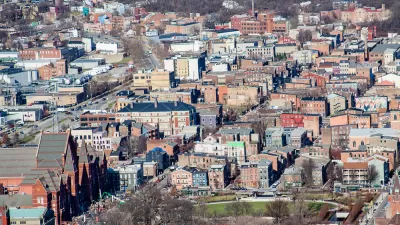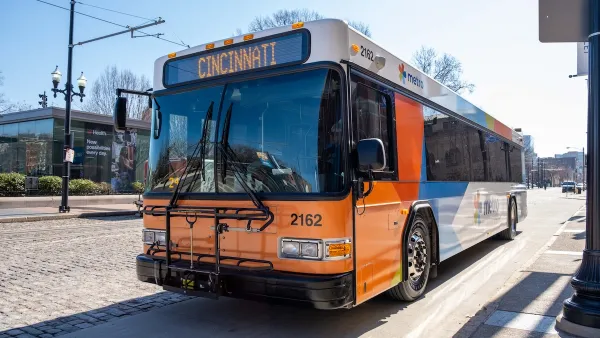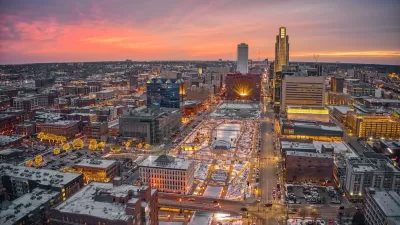The $100 million investment by Medpace CEO Dr. August Troendle will add a new hotel in addition to office and commercial space to the neighborhood of Madisonville. The deal that enables the project involves a lot of moving parts.
Bowdeya Tweh reports on a Cincinnati project moving through the City Council that would allow Medpace to create a new corporate headquarters by "[investing] $100 million to build a new hotel, offices and commercial space" on eight acres of property at the former NuTone manufacturing site.
Just as notable as the size and scope of the investment are the planning and political mountains that moved to pave the way for the project. According to an article by the Cincinnati Business Courier, the Budget and Finance Committee voted "to reduce Medpace’s jobs requirement and average payroll commitment under a Job Creation Tax Credit to help fund the plan." Additionally, the full City Council must still approve a development agreement. Even more, "[a]pproval will also have to be granted individually for a tax increment financing district, planned development agreement, authorization to enter an agreement with the port for a bond sale and authorization to transfer or accept a public right-of-way."
It's also worth noting that the project ignited controversy due to its plan to extend Duck Creek Road from its terminus at Red Bank to connect to Madison Road—cutting through John P. Parker School property in the process.
FULL STORY: Council panel OKs $100M Madisonville plan

Planetizen Federal Action Tracker
A weekly monitor of how Trump’s orders and actions are impacting planners and planning in America.

Maui's Vacation Rental Debate Turns Ugly
Verbal attacks, misinformation campaigns and fistfights plague a high-stakes debate to convert thousands of vacation rentals into long-term housing.

San Francisco Suspends Traffic Calming Amidst Record Deaths
Citing “a challenging fiscal landscape,” the city will cease the program on the heels of 42 traffic deaths, including 24 pedestrians.

Amtrak Rolls Out New Orleans to Alabama “Mardi Gras” Train
The new service will operate morning and evening departures between Mobile and New Orleans.

The Subversive Car-Free Guide to Trump's Great American Road Trip
Car-free ways to access Chicagoland’s best tourist attractions.

San Antonio and Austin are Fusing Into one Massive Megaregion
The region spanning the two central Texas cities is growing fast, posing challenges for local infrastructure and water supplies.
Urban Design for Planners 1: Software Tools
This six-course series explores essential urban design concepts using open source software and equips planners with the tools they need to participate fully in the urban design process.
Planning for Universal Design
Learn the tools for implementing Universal Design in planning regulations.
Heyer Gruel & Associates PA
JM Goldson LLC
Custer County Colorado
City of Camden Redevelopment Agency
City of Astoria
Transportation Research & Education Center (TREC) at Portland State University
Jefferson Parish Government
Camden Redevelopment Agency
City of Claremont





























